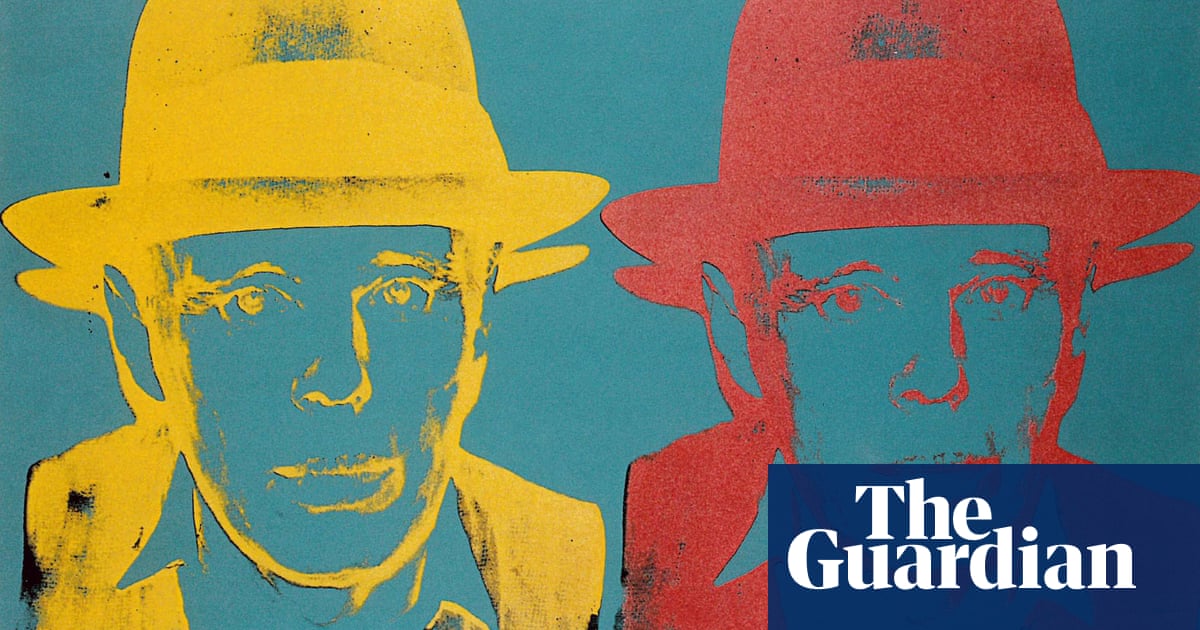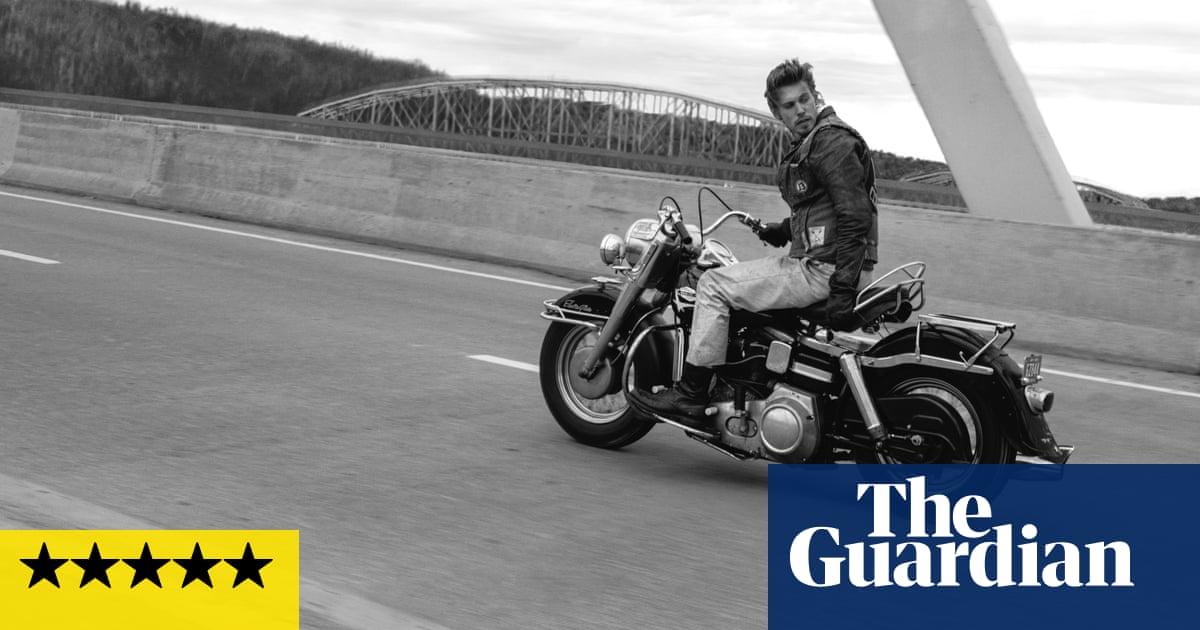
The last time Brian Auger met Jimi Hendrix was at a New York recording studio in 1970. “His skin tone – and that of his girlfriend – was grey, really unhealthy looking,” Auger recalls. “He asked me to stay and help him on a recording project – his Electric Ladyland studio was being built at the time. Sadly, I had to decline. I had all these dates booked I couldn’t cancel. Then he took this silver foil out of his pocket, took a whiff and offered it to me. I refused, saying, ‘I don’t do any of that stuff.’ Jimi replied, ‘Brian, I should have more people like you around me.’”
Never a truer word spoken: at 82, Brian Auger is a picture of good health, fine humour and energetic creativity. Auger is a London Zelig of sorts – a musician whose connections and creativity saw him serve as a pivotal figure in the centre of what are now fondly considered the Swinging 60s’ jazz, blues and rock scenes – yet he’s best remembered, if at all, for This Wheel’s on Fire, the 1968 Top 5 hit that he and Julie Driscoll scored with a then-unreleased Bob Dylan song. Said tune ended up providing the theme music for Absolutely Fabulous, ensuring Auger’s enduring status as an answer in pub quizzes – while reinforcing the sense that he was a one-hit wonder.
“They didn’t even use the original version,” Auger says of the series producers, with evident distaste. “Instead, they were so cheap they paid Julie [now Tippetts] a minuscule fee to re-record the vocal with session musicians. They spunked a fortune on that series so it’s bloody insulting.”
While aggrieved at this slight, Auger is evidently a happy man. Considering that he is the missing link of sorts from an era where many of his contemporaries earned vast fortunes, I expected him to trot out the “I’ve been ripped off” grievances many veteran rockers trade in. Not at all, but having been a professional musician since the mid-1950s, Auger has experienced every high and low possible, none of it appearing to dampen his love for making music.
A new archival series, Auger Incorporated, aims to document his entire career. Unreleased live and studio sessions with the likes of Sonny Boy Williamson, Rod Stewart, Jimmy Page, Billy Cobham and others will appear alongside his classic recordings with Julie Driscoll and the Trinity and Oblivion Express.
It’s a career with roots in Auger’s earliest childhood, he explains. He grew up in Shepherd’s Bush, west London. “My family had a pianola and this fascinated me from infancy,” he recalls. When their house was bombed during the second world war, he was evacuated to Yorkshire. “The family who hosted us happened to have a piano – such luck! I began teaching myself to play by ear.” His grammar school offered a grand piano, so he decided to have a go after class. “One day the headmaster caught me and I thought I was done for because I was playing Winifred Atwell tunes, not classical. Instead, he announced that I would play in front of the Friday morning assembly. Normally, this involved some poor sod sawing away on his violin but, come Friday, the headmaster announced” – Auger puts on a posh voice – “‘Auger is going to play boo-gie woo-gie’ – honestly, it could have been a Monty Python sketch! I played Atwell’s Cross Hands Boogie and, when I finished, the pupils erupted like at a football match. I knew then that music was what I wanted to do with my life.”
Jazz caught the teenager’s ear and he soon found himself playing with other talented youths – Tubby Hayes, John McLaughlin, Joe Harriott, Alan Skidmore and Rick Laird among them – on London’s dynamic modern jazz scene. Hungry for work and experience, Auger would play a jazz set at Ronnie Scott’s then rush over to Wardour Street to play R&B at the Flamingo. “This caused some tension as many jazz musicians looked down on me for playing R&B,” he says. Depping for an ill Georgie Fame at the Flamingo, Auger found himself forced to learn how to play Fame’s Hammond organ on stage. This changed everything.
“I’d first heard Jimmy Smith play Hammond and loved his sound but I’d always considered myself a jazz pianist,” says Auger. “Then I got Georgie’s gig and …” He laughs, still surprised how his instant mastery of the Hammond made him a mod icon.
Giorgio Gomelsky, a Swiss national who had briefly managed the Rolling Stones and the Yardbirds (that’s Auger’s harpsichord on For Your Love), saw star quality in Auger and became his manager. In 1965, Gomelsky paired him with Long John Baldry (“the best blues singer in the UK”) and Baldry’s modish protege Rod Stewart (“Rod was always obnoxious – even way back then”). Auger insisted that Julie Driscoll, a young singer he had started working with, join the fledgling supergroup and Steampacket quickly became one of the UK’s foremost live outfits. They never released anything during their brief existence – Baldry and Stewart left in 1966 to pursue solo careers – leaving Driscoll and Auger as co-leaders of the Trinity.
Signed to Gomelsky’s own label, Marmalade Records, the Trinity’s revolutionary blend of jazz and R&B, rock and folk created a protean psych-flavoured fusion that won great kudos. In September 1966 a manager named Chas Chandler (once bassist in the Animals), rang Auger, suggesting that a young American guitarist he had just flown over from New York join the Trinity as vocalist and guitarist.
“I declined as I was happy with Julie as vocalist and Vic Briggs on guitar,” says Auger. “So Chas asked if his guy could sit in with the band – we were playing the Cromwellian, a very chic, late-night club – and I said I’d make a decision once I met him. Well, he seemed a nice guy, quite shy, so he joined us for our second set and, as the Cromwellian was one of the few places where you could legally drink after hours, it was filled with musicians. When Jimi began to play, boy, he just about set fire to the club and Eric Clapton turned incredibly pale!”
Auger says he has no regrets in not recruiting Hendrix. Understandably so: the Trinity recorded four remarkable albums between 1967 and 69. They were huge in France and very popular across the continent – 1969’s Streetnoise album features Czechoslovakia, a moving meditation on the Soviet crushing of the Prague Spring written after the Trinity played there in 1968 – although Auger and Driscoll’s eclecticism likely hindered their music reaching a mass audience.
This combined with being on a record label run by their spendthrift manager. “In 1969 we returned from a US tour to find we had no money at all,” says Auger. “Giorgio had a staff of 24 yet we were his only successful band. All our earnings went into sustaining his lifestyle. He then went bankrupt and we were left bereft. Julie was so upset she left the music industry – at least for a while.”
Auger started the 1970s afresh fronting the Oblivion Express, a jazz-rock ensemble who quickly won a large US following. “One of our American promoters said to me, ‘Your band is the only one that attracts a mixed Black and white audience – why’s that?’ I replied: ‘Look at the band – it’s Black and white musicians.’ We played with everyone – Kiss, War, Led Zeppelin; Maurice White invited Oblivion Express to support Earth, Wind and Fire, said he loved our music. Tony Williams and Herbie Hancock championed us. Things were wide open then, no compromises were necessary.”
Auger moved to Los Angeles in 1975, dividing his time since between the US and the continent. “My wife’s Italian so we wanted the children to be bilingual.” And handily, he says, “in Italy, Germany and France the interest’s always been strong”.
Auger’s long absence from the UK meant his legacy was neglected – at least until Eddie Piller of Acid Jazz Records took to hailing him as “the godfather of acid jazz” at the start of the 1990s and he started attracting youthful audiences dressed akin to those he played for in the early 60s. “The 80s were a tough decade for a Hammond player as everyone wanted synthesisers,” he says, “so I’d stripped things back to a small combo. Finding this young, sharply dressed audience – a nice surprise.”
Having sued Gromelsky and won ownership of his Marmalade masters, Auger has since ensured he retains ownership of his music – a move that proved lucrative when everyone from All Saints to Common started sampling his catalogue in the 90s. Dissatisfied with a disintegrating industry, Auger had chosen not to license his recordings in recent years until he was approached by Germany’s !K7 music conglomerate for this epic reissue programme on Soul Bank Music. Considering the jazz ferments currently lighting up contemporary British music, its perfect timing for Auger’s legacy to be reconsidered.
“Nowadays my son’s my drummer and my daughter’s my vocalist,” says Auger with a broad smile. “It’s a family affair and we love to go out there and keep the music alive.”
The Auger Incorporated series will be released by Soul Bank Music.












